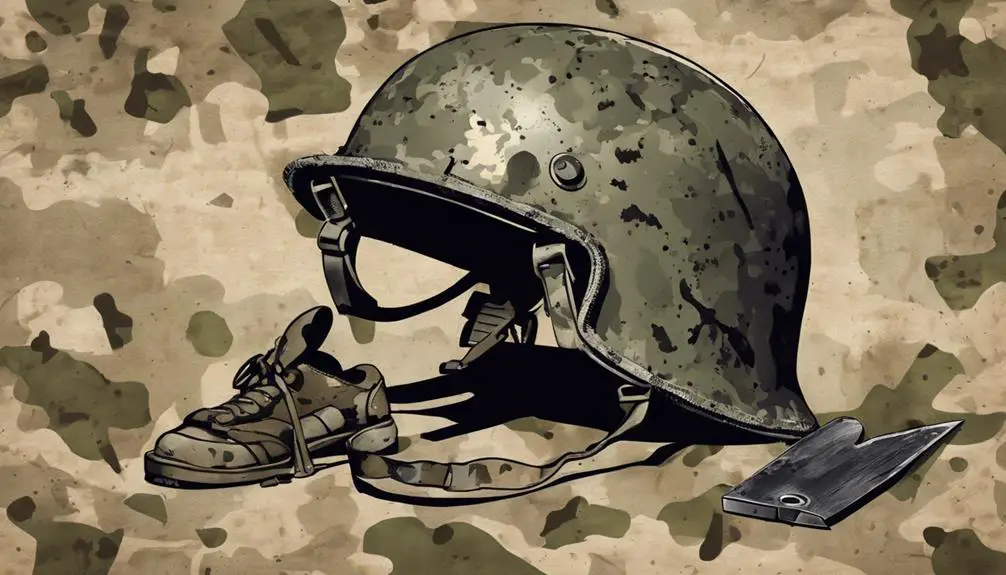You're about to immerse yourself in the unbridled world of military slang, where cryptic phrases and acronyms are woven into the fabric of daily communication. In this unique language, you'll find acronyms born from World War I, slang that boosts morale, and code names that conceal mission details. As you venture deeper, you'll discover how specialized roles and ranks rely on effective communication, and how tactical handoffs guarantee seamless information transfer. The lines between humor and darkness blur in battlefield slang, but one thing's clear: the jargon of the modern soldier is a complex, ever-evolving beast waiting to be understood.
Deciphering Military Acronyms
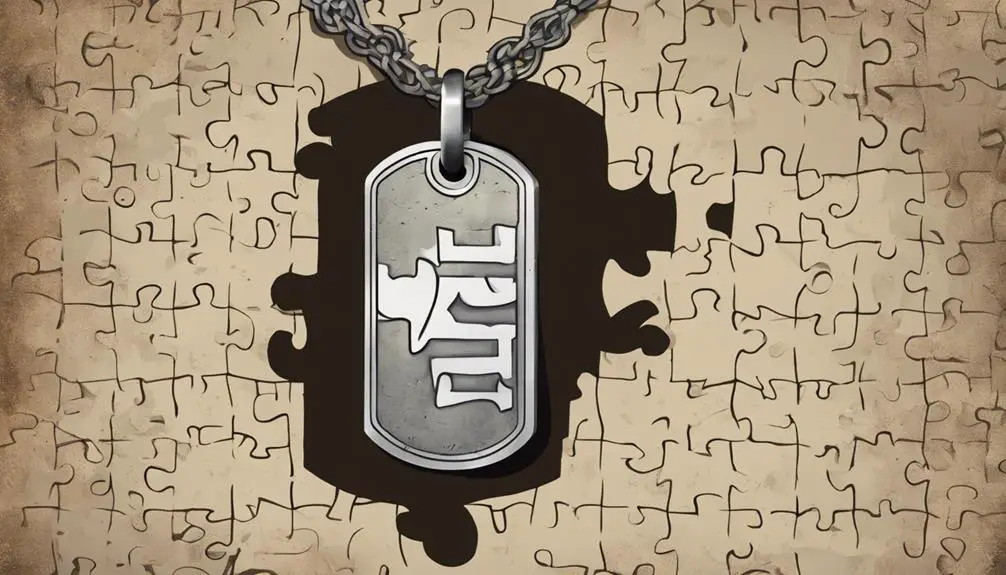
When you're immersed in a military environment, you'll quickly realize that acronyms are an integral part of the communication landscape. They're used to convey complex information quickly and efficiently, and understanding them is vital to effective communication.
But have you ever wondered where these acronyms come from?
The origins of military acronyms can be traced back to the early days of military communication. During World War I, the military began using abbreviations to simplify complex terminology and speed up communication. This abbreviation evolution continued through World War II, with the development of new technologies and tactics.
As the military adapted to new situations, new acronyms were created to describe them.
Today, military acronyms are an essential part of the military lexicon. They're used to describe everything from military operations to equipment and personnel. Understanding the origins and evolution of these acronyms can help you better comprehend military communication and navigate the complex world of military slang.
Slang of the Battlefield
You're likely to encounter a unique set of slang terms on the battlefield, where soldiers rely on colloquialisms and informal language to quickly convey critical information and maintain situational awareness. This slang serves as a way to communicate efficiently, often using humor to cope with the stresses of war. Battle cries, for instance, are used to intimidate enemies, boost morale, and create a sense of unity among comrades.
| Term | Meaning | Context |
|---|---|---|
| "Oorah!" | Expression of enthusiasm or approval | Used to acknowledge a job well done or to express excitement |
| "Hooah!" | Expression of motivation or determination | Used to motivate teammates or to express determination |
| "FNG" | "Freaking New Guy" | Used to refer to a new recruit or inexperienced soldier |
Frontline humor, another aspect of battlefield slang, helps soldiers cope with the harsh realities of war. By using humor, soldiers can momentarily escape the dangers and difficulties of their situation. This humor often manifests as dark humor or sarcasm, providing a much-needed release of tension.
Code Names and Nicknames
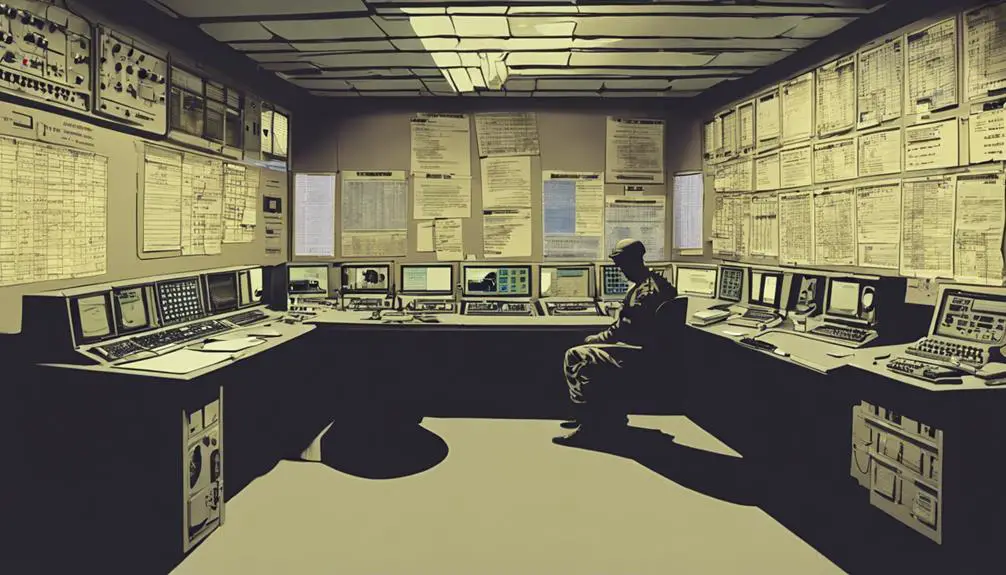
As soldiers rely on colloquialisms to quickly convey critical information, they also employ code names and nicknames to identify people, places, and operations, adding another layer of complexity to military slang. You might've heard of Operational Aliases, which are used to conceal the true nature of an operation or mission.
Cryptic Monikers, on the other hand, are used to identify people or units in a covert manner.
Here are some examples of code names and nicknames used in the military:
- Operation Overlord: The code name for the Allied invasion of Normandy during World War II.
- Apache: The nickname for the AH-64 attack helicopter used by the US Army.
- Spartan: The code name for a special operations team.
- Nightshade: The nickname for a classified military unit.
These code names and nicknames serve as a form of shorthand, allowing soldiers to quickly communicate crucial information without arousing suspicion or revealing sensitive details.
Communication in Combat Zones
In combat zones, effective communication is essential to mission success, and soldiers rely on a range of verbal and non-verbal cues to convey critical information quickly and accurately.
When you're in the midst of a high-stress situation, clear communication is the difference between life and death. That's why you'll often hear soldiers using specific phrases and codes to convey complex information in a split second.
One important aspect of communication in combat zones is Tactical Handoffs, where you'll need to seamlessly transfer information to your teammates, ensuring a smooth continuation of the mission.
You'll also need to maintain Radio Discipline, adhering to strict protocols for transmitting and receiving information over the radio. This includes using clear and concise language, avoiding unnecessary chatter, and following established call signs and frequencies.
By mastering these communication skills, you'll be able to stay focused on the mission and trust that your teammates have your back.
Military Ranks and Roles
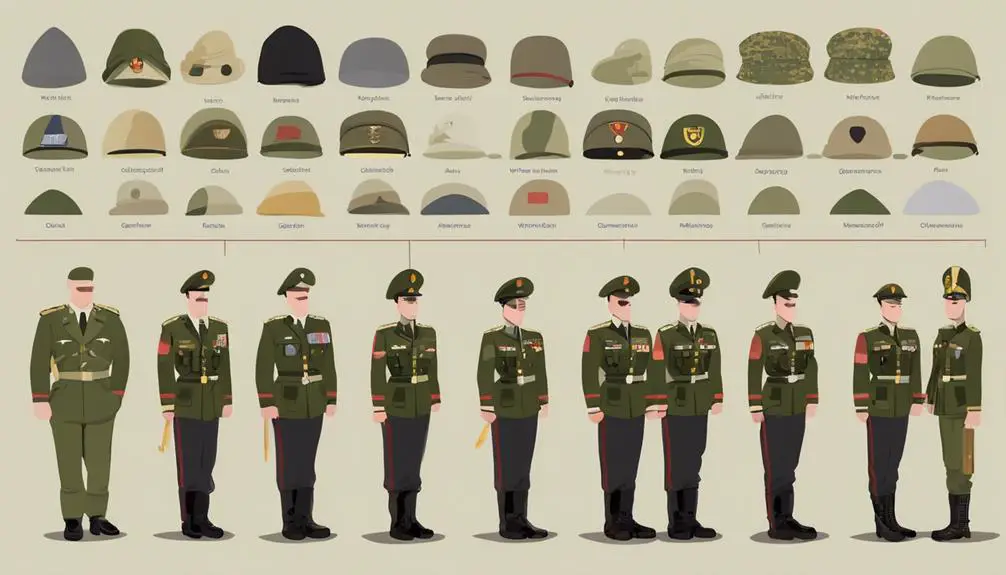
From private to general, each military rank holds distinct responsibilities, and understanding these roles is important for effective teamwork and mission success.
As you navigate the military hierarchy, you'll encounter various ranks and roles, each with its own set of duties and expectations.
Here are 4 key aspects of military ranks and roles:
- Enlisted Life: You'll start as an enlisted personnel, where you'll focus on developing your skills and taking orders from higher-ranking officers.
- Officer Mindset: As you rise through the ranks, you'll adopt an officer mindset, leading teams and making strategic decisions.
- Chain of Command: Understanding the chain of command is essential, as it promotes clear communication and efficient decision-making.
- Specializations: You'll have opportunities to specialize in various fields, such as engineering, medicine, or intelligence, which will further define your role within the military.
Jargon of the Modern Soldier
You'll quickly realize that military communication relies heavily on a unique language, packed with acronyms, abbreviations, and slang terms that can be confusing to outsiders. As you explore further, you'll discover that this jargon serves a purpose beyond just being a quirky aspect of military culture. It's a way for soldiers to quickly convey complex information, often in high-pressure situations. This specialized language also fosters a sense of camaraderie and shared identity among soldiers, setting them apart from civilians.
Tactical humor, a hallmark of military banter, helps soldiers cope with the stresses of combat. It's not uncommon to hear jokes and sarcastic remarks flying back and forth between soldiers, even in the midst of intense operations. This humor serves as a pressure valve, allowing soldiers to momentarily forget the dangers surrounding them. Additionally, it reinforces their soldier identity, reminding them that they're part of an exclusive group that's been through similar experiences.
Evolution of Military Lingo
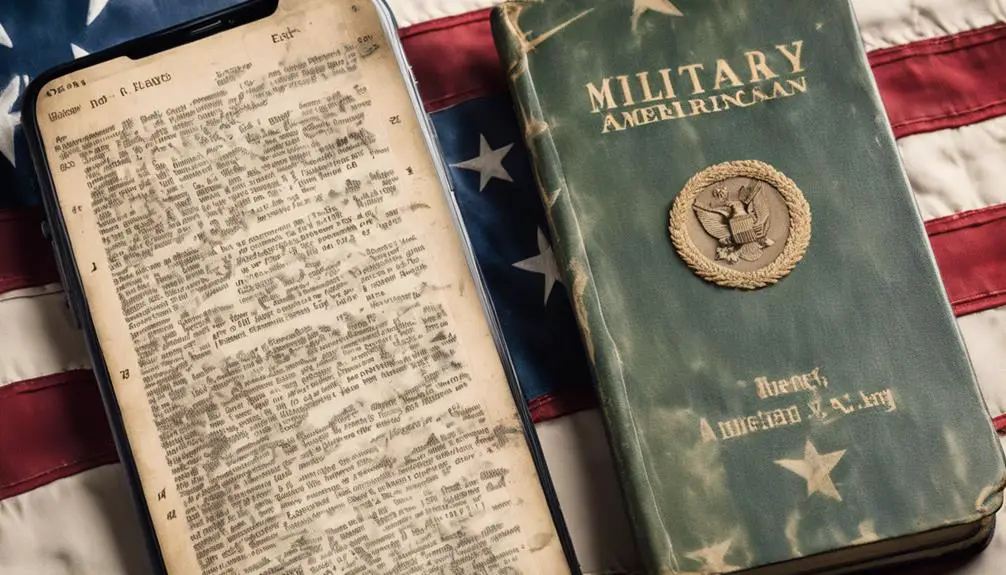
Military slang has undergone significant transformations over the years, adapting to advances in technology, changes in global politics, and shifting cultural values. As you explore the evolution of military lingo, you'll notice that it's been shaped by various factors.
One key aspect of this evolution is linguistic adaptation. Military slang has borrowed words and phrases from different languages, reflecting the diverse cultural backgrounds of soldiers. This cultural fusion has enriched military language, making it more dynamic and expressive.
Here are some key milestones in the evolution of military slang:
- WWI: Slang emerged as a way to cope with the trauma of war, using humor and irony to describe the harsh realities of combat.
- WWII: Military slang became more formalized, with the introduction of official terminology and communication protocols.
- Vietnam War: The rise of counterculture and anti-war movements influenced military slang, incorporating more colloquialisms and slang terms.
- Modern Era: The advent of technology and social media has accelerated the spread of military slang, making it more accessible and widespread.
Frequently Asked Questions
Are Military Slang Terms Used Universally Across All Branches?
You might assume that military slang is universal across all branches, but that's not entirely true. While some terms are widely used, each branch has its own unique slang, shaped by its specific culture and history.
Branch variations are significant, and slang evolution occurs independently within each branch. You'll find that Army, Navy, Air Force, and Marine Corps slang differ, reflecting their distinct identities and operational environments.
Do Military Spouses Use Military Slang in Daily Conversations?
You might wonder, do military spouses use military slang in daily conversations?
Imagine overhearing a spouse casually drop 'OPSEC' in a conversation about keeping a surprise party under wraps.
While it's not a universal trend, many spouses adopt 'spouse lingo' as a way to connect with their service member and the military community.
As they navigate civilian adaptation, they often bring military terminology into their daily conversations, making it a unique aspect of their social identity.
Can Civilians Use Military Slang in Professional Settings?
When thinking about using military slang in a professional setting, it's crucial to keep in mind that sounding cool isn't the only goal. Utilizing language that isn't inherently yours can be perceived as cultural appropriation.
It's vital to prioritize professional etiquette and refrain from using terms that could be interpreted as disrespectful or insensitive. Before incorporating military slang, ask yourself: do you genuinely belong to that culture, or are you simply adopting it for convenience?
Be conscious of your audience and emphasize respectful communication.
Are There Regional Differences in Military Slang Usage?
You might be surprised to learn that regional differences in slang usage aren't unique to civilians.
In the military, you'll find distinct dialects and colloquialisms depending on the region. For instance, coastal dialects in naval bases often incorporate nautical terms, while border colloquialisms near international borders might reflect local cultural influences.
These regional differences can be fascinating, and as you explore military slang, you'll discover a rich tapestry of language variations.
Are Military Slang Terms Officially Recognized by the Military?
You might wonder if military slang terms are officially recognized by the military. The answer is, it's complicated.
While there's no centralized database of approved slang, military language evolution is often driven by practical needs. Slang regulation policies vary across branches and units, with some encouraging creative communication and others restricting unofficial terminology.
This grey area leaves room for interpretation, making it difficult to pinpoint official recognition.
Conclusion
As you navigate the complex world of military slang, remember that language is a battlefield in itself. Amidst the chaos, acronyms, code names, and jargon can be both shields and swords – protecting identities while conveying critical information.
Like a soldier adapting to new terrain, you've learned to decipher the terrain of military lingo. Now, deploy your newfound understanding to decode the unspoken language of the armed forces.

